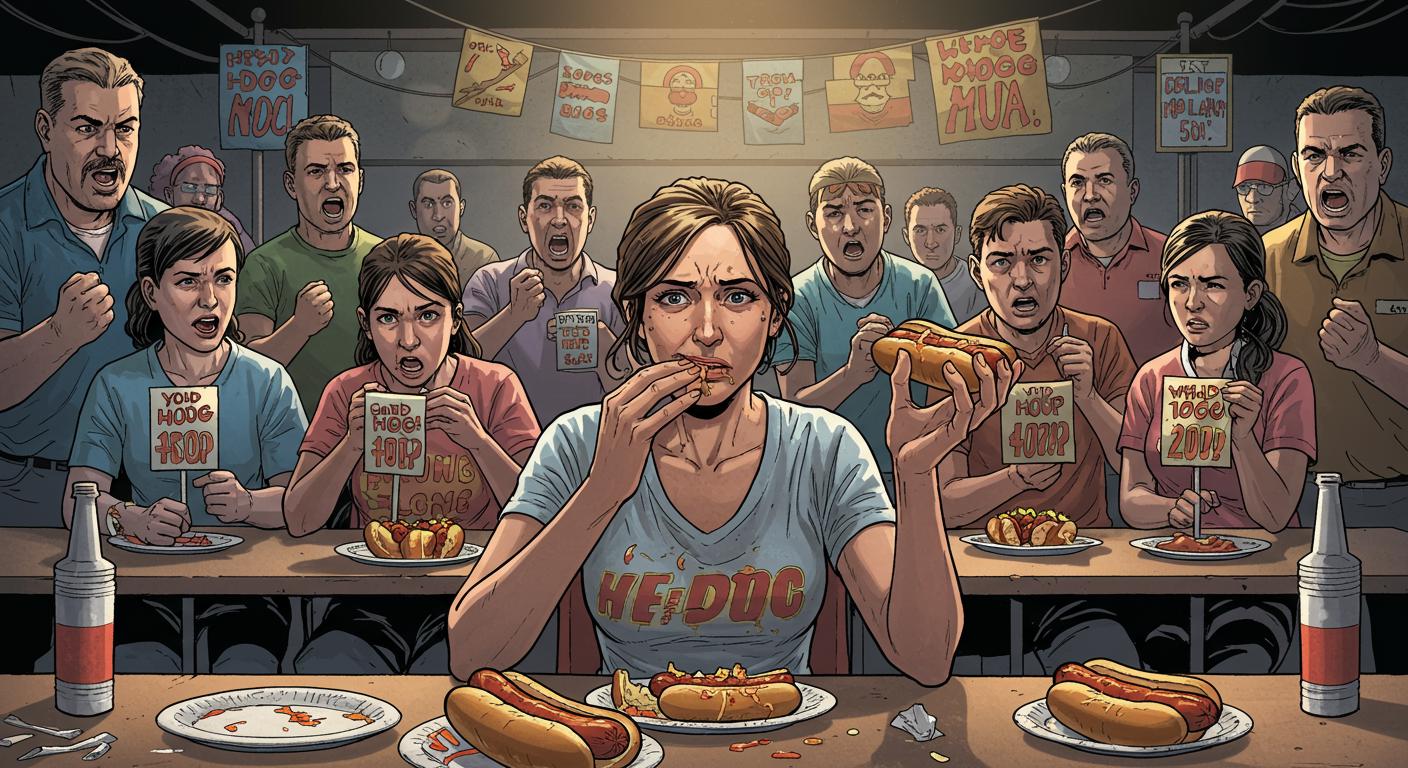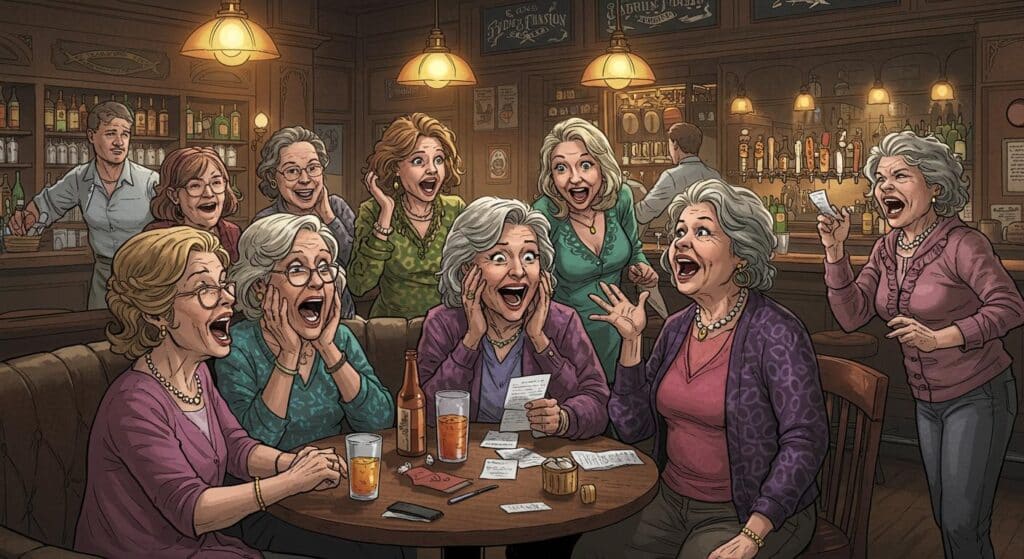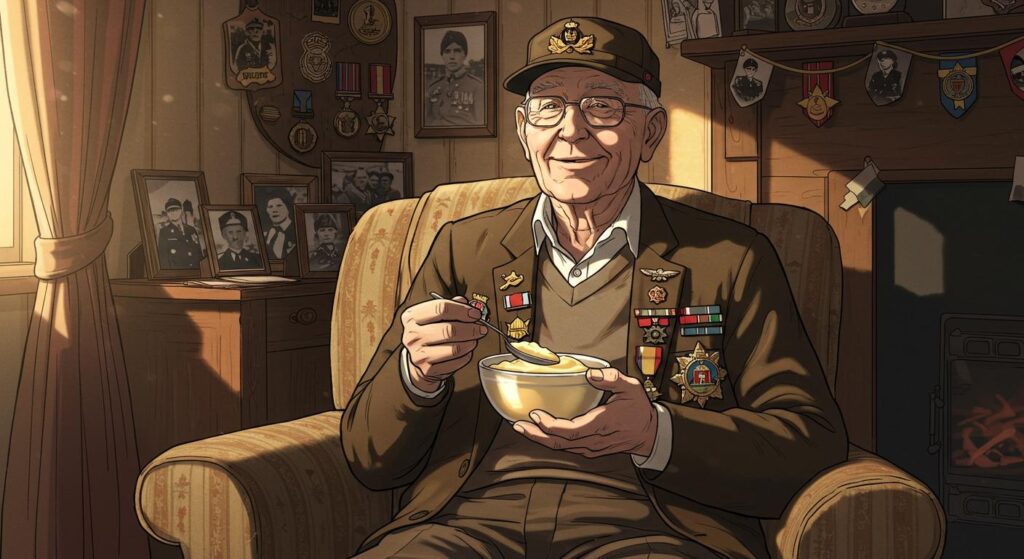Competitive eating has always straddled that oddly fascinating line between sport and pure spectacle—a pageant of both stamina and, frankly, stomach. But every so often even this world, governed as it is by clock and calories, finds itself derailed by a moment of singular weirdness.
This year’s Nathan’s Hot Dog Eating Contest delivered a prime example. As documented by USA TODAY, Madison Barone’s name appeared with a “DQ” in the women’s early results, only to vanish entirely from the final standings distributed by Major League Eating. Not an arcane scoring error, but the result of something far more corporeal.
“Urges Contrary to Swallowing”: Behind the Euphemism
So, what led to Barone’s abrupt erasure? According to details provided by USA TODAY, Sam Barclay, Major League Eating’s director of operations, clarified that Barone “experienced urges contrary to swallowing after the contest but before the conclusion of presentations and the awarding of places.” Major League Eating rules are apparently as stern as they are euphemistic: succumbing to these particular “urges” before the event is officially over—meaning all presentations and prizes are done—results in automatic disqualification.
USA TODAY points out that this poetic phrase essentially denotes regurgitation, though the actual term is considered a kind of verbal taboo within the contest itself. No less an authority than longtime contest announcer George Shea reinforced this aversion, explaining that within Nathan’s, “We will only say urges contrary to swallowing. We never utter other words. It is like saying Voldemort.” Perhaps part of the attraction of competitive eating is the high-wire act: victory and infamy separated by, sometimes, a single poorly timed “urge.”
Barone, a 24-year-old from Manville, New Jersey, didn’t respond to USA TODAY’s request for comment—a silence that’s fairly understandable, given the circumstances.
The Digestive Tightrope
Grouped together, the facts reported by USA TODAY reveal the fragile calculus of competitive eating glory. To place in the final results, it’s not enough to wolf down an astonishing number of hot dogs before the clock runs out; competitors must also maintain composure, dignity, and—crucially—digestion right through the post-contest awards ceremony. It’s a tense few minutes where fortunes can be reversed, sometimes for reasons of simple biology. The outlet also notes that once these “urges” have occurred during that critical period before official results, all previous efforts are effectively erased from history.
Meanwhile, Miki Sudo tackled the contest with characteristic efficiency, downing 33 hot dogs and buns in 10 minutes and, importantly, managing to avoid the fate that befell Barone. Digestive discipline, it seems, can be as vital as raw appetite.
Where Triumph Turns on a Technicality
One has to wonder: does the ever-present specter of such ignominious disqualification make the spectacle more unsettling or more captivating? Competitive eaters sign up for both the glory and the risk, but few sports require quite such delicate management of post-event biology. There’s an irony in how much of competitive eating, for all its bravado, comes down to restraint in the final, unscripted moments.
Barone’s infamous “urges” are a reminder that even in the most regulated of eating arenas, the body has final say. How many other championships hang on such a slender thread—one minute a rising star, the next a vanished line on the results sheet? In the lexicon of the contest, the words remain gentle even if the reality isn’t. You have to wonder: in the theatre of sport, is the line between triumph and infamy ever truly more literal than at Nathan’s Hot Dog Eating Contest?







